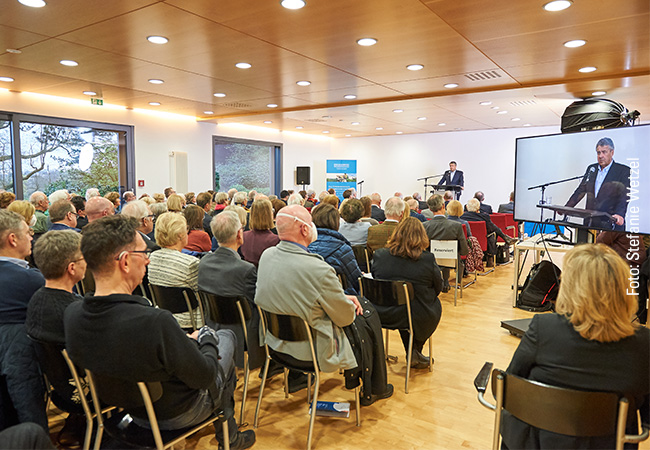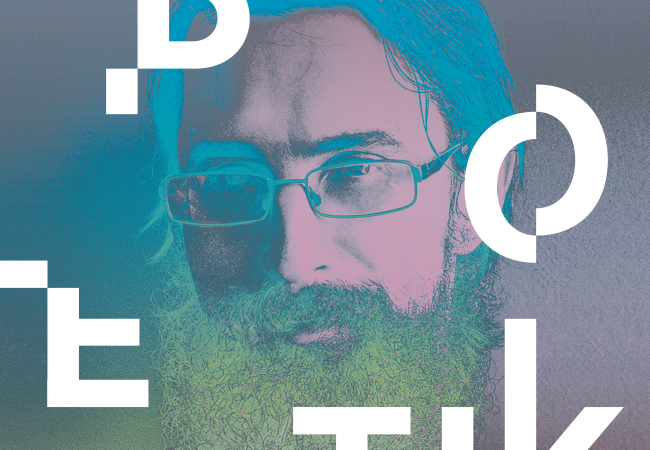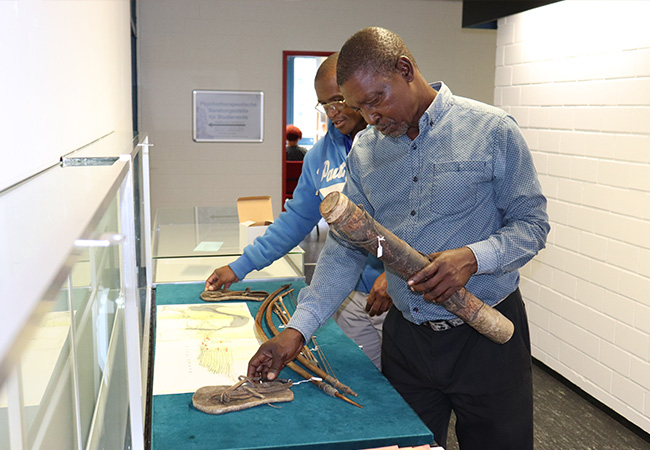Germany’s former federal minister and vice chancellor Sigmar Gabriel, now chairman of Atlantik-Brücke e.V., a non-profit association in service of German-American friendship, spoke at the Transatlantic Forum in Bad Homburg on the shifts in global politics.
“Germany, the EU and transatlantic relations after the ‘Zeitenwende’” – that was the title of the lecture delivered by Germany’s former vice chancellor and head of the social democratic SPD party Sigmar Gabriel at the second John McCloy lecture, held at Goethe University’s Forschungskolleg Humanwissenschaften Institute for Advanced Studies in late April. His speech at the sold-out event had been eagerly anticipated. After welcoming remarks delivered by institute director Prof. Matthias Lutz-Bachmann, Goethe University President Prof. Enrico Schleiff and Bad Homburg Mayor Alexander Hetjes, political scientist Prof. Gunther Hellmann of Goethe University gave an overview of Gabriel’s impressive political biography.
Sigmar Gabriel then stepped up to the speaker’s podium and delivered a 60-minute lecture, without, it seems, having to refer to his notes even once. In his introductory remarks, Gabriel stressed that, had it not been for John McCloy, the Atlantik-Brücke association, which celebrated its 70th anniversary in 2022, would not exist – adding that it was McCloy, who successfully prevented the American president from implementing the Morgenthau Plan to deindustrialize Germany. When it comes to contemporary America, however, Gabriel said that what we see today is an entirely different country where most inhabitants no longer have European roots. German-American topics are not as important in social discourse as they were during the postwar period, he said, adding that instead, most of today’s topics revolve around the future relationship between Europe and the US.
The US – a “Pacific nation”
Gabriel said he already employed the term “Zeitenwende” (German for “watershed” or “turning point”), used by Olaf Scholz in the wake of Russia’s war of aggression on Ukraine, in the title of a book he published in 2018. Contrary to Chancellor Scholz, Gabriel said he does not consider Russia’s war on Ukraine as a turning point, but instead as the consequence of one. With a view towards the Early Modern Period, Gabriel reminded the audience that the Atlantic served as the center of gravity in world politics for nearly 600 years: The European-American axis exerted a major influence on world events. What we are witnessing today, he said, is a shift toward the Indo-Pacific, home to two thirds of the world’s population and five nuclear powers. Whereas Europe has not yet really recognized this tectonic shift, the US has been trying to answer the question of what its role in international politics should be for the past 20 years.
Until now, Gabriel said, the US had always seen itself as the world’s economic and technological leader, and the guarantor of a liberal world order, complete with institutions it had devised, including the World Bank, the International Monetary Fund and the UN – even if, as Gabriel pointed out, the Americans also frequently infringed on liberal ideas. George W. Bush referred to the US as a “Pacific nation”, and his successor Barack Obama spoke of a focus on the Pacific. Whenever the Americans depart from hotspots, they leave behind a power vacuum that other superpowers try to fill, Gabriel said, pointing to one dramatic example: the conflict between Saudi Arabia and Iran, which gave rise to the civil war in Yemen, and which, according to the UN, currently constitutes the world’s worst humanitarian crisis. Here it was China, not the US, which had set up a communication channel between the two countries to put an end to the war. China also worked on a peace plan to end Russia’s war on Ukraine – and even if this plan may not live up to its name, it is still astonishing to see China explain conflict resolution to the West. Europe, Gabriel continued, is just a bystander in many of the world’s conflicts.
Re-nationalization
One manifestation of the “Zeitenwende” is the paradoxical re-nationalization of conflicts, even though the urgent problems of our times, such as climate change, have taken on global dimensions, Gabriel said, adding that many countries are busy building up their strength. Speaking of Britain, he said the country had found the prospect of greater independence to be very attractive and therefore accepted Brexit’s potential economic impact. French President Macron, too, had spoken of a European agreement without the US. That is why, Gabriel said, Germany has to keep in mind an important task – namely the one of holding together the forces trying to pull Europe apart. German reunification would not have been possible without the Americans, he reminded the audience, pointing out that Europe had taken quite a critical view of a unified Germany. The country’s membership in both NATO and the EU had been a key factor in allaying fears about a stronger German neighbor. Gabriel stressed that the transatlantic axis with America does have a future, but that it is one in which Germany has to assume more responsibility.
The event’s concluding discussion focused on whether the West should in future act as less of a “know-all” in its dealings with the Global South, especially given the rising influence of Russia and China. Gabriel’s opinion: “It is important that values be taken into account, but it takes more than simply upholding values. We have to balance the various interests.” It does not make sense, he added, to maintain contacts solely with states that share the same values. Asked about Russia’s war on Ukraine, Gabriel talked about the view held in Germany for a long time, that Russia was merely a “small Soviet Union.” He said he, too, had misjudged Russia’s interests. For a long time, “change through rapprochement” had been the maxim in German foreign policy, and the revisionist tendencies in Russia had gone unnoticed. In the long term, Gabriel said, the war against Ukraine will also serve the domestic purpose of turning the country into a dictatorship. At the same time, Gabriel reiterated Henry Kissinger’s warning that a disintegration of Russia could result in the emergence of several nuclear powers. In his mind, Putin only wants to negotiate with the US – not with Europe. The question remains, he added, of what influence the Global South can exert when it comes to resolving the conflict.
ABOUT THE FORUM
Established at Goethe University’s Forschungskolleg Humanwissenschaften in November 2022, the John McCloy Transatlantic Forum is a platform for dialog with the public, which is closely associated with the Institute of Advanced Studies’ interdisciplinary research project “Democratic Vistas. Reflections on the Atlantic World,” headed by political scientist Prof. Gunther Hellmann and Americanist Prof. Johannes Völz.
Link: News













